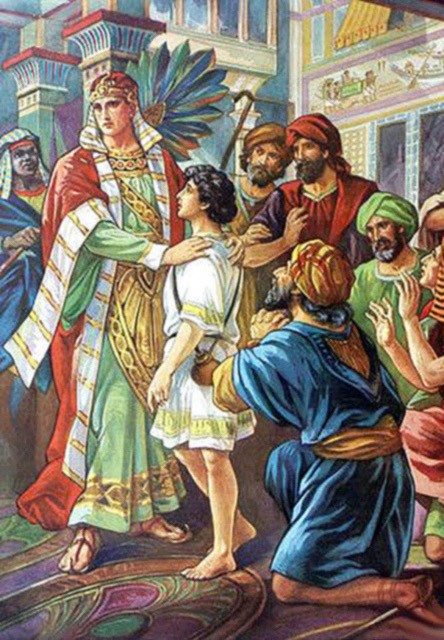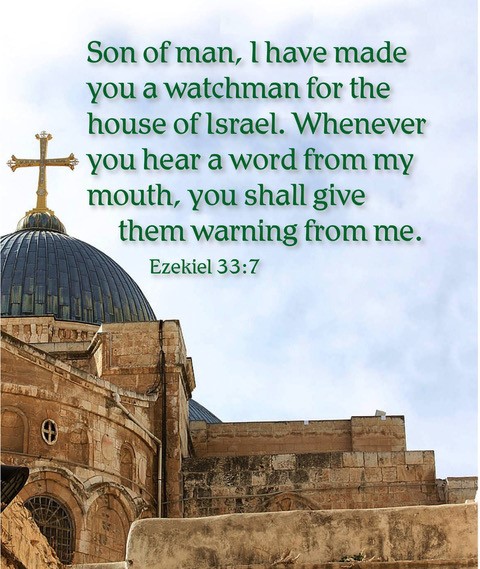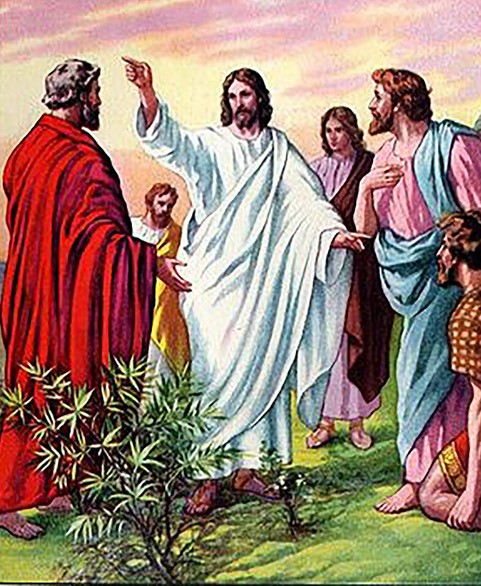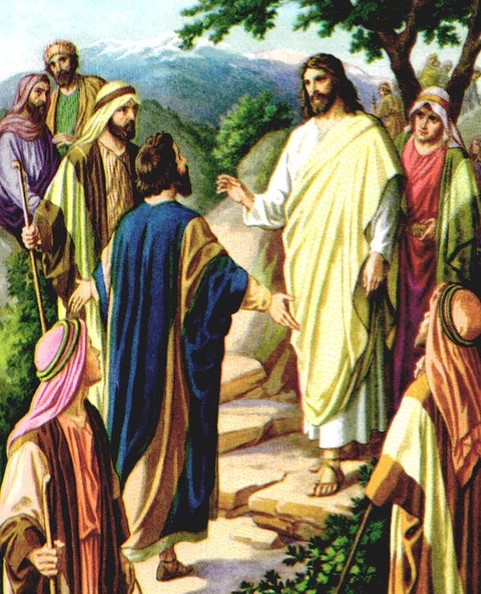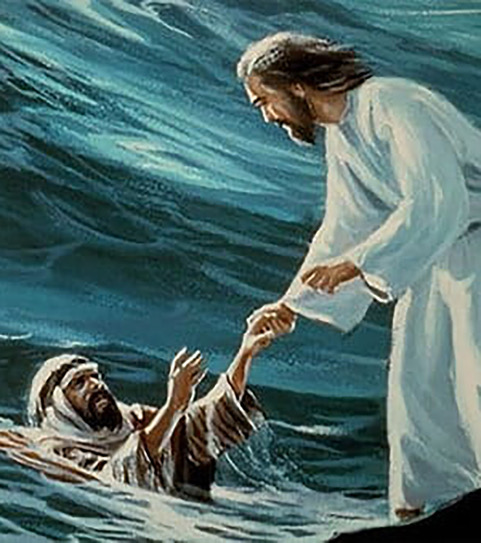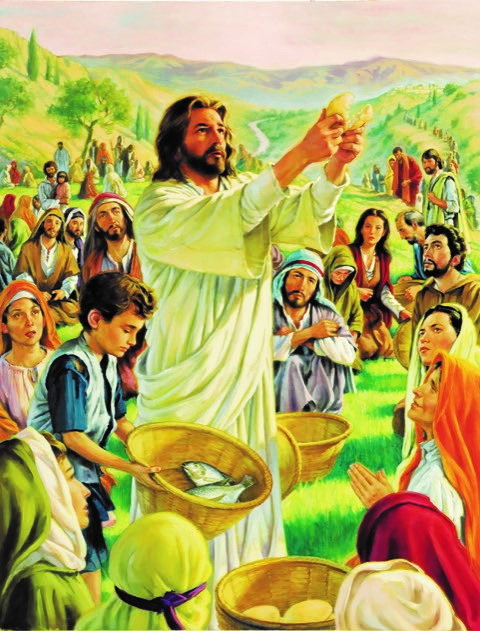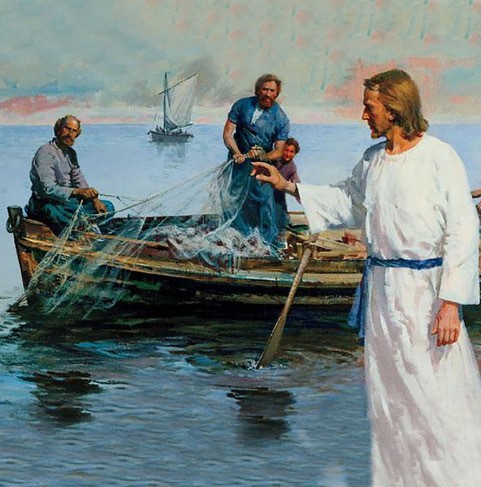Notes
The Lord be with you!
I will offer the sacrifice of thanksgiving and call on the name of the LORD.
This is the Sixteenth Sunday after Pentecost, and the theme emphasizes the one-sided love of God that saved us. He reached out to us. He acted first and He acted alone to bring us to Himself. We should put away our feeble human attempts to offer our works and status to replace or somehow complement the abiding grace that’s been given to us. We may rejoice because we stand before the Lord relying fully on Him instead.
Let us pray:
Lord God, heavenly Father, since we cannot stand before You relying on anything we have done, help us trust in Your abiding grace and live according to Your Word; through Jesus Christ, Your Son, our Lord, who lives and reigns with You and the Holy Spirit, one God, now and forever.
Amen.
Isaiah 55:6–9
God’s love for us is so great, and it goes so beyond our ability to reason, that when we with our human minds try to grasp it, the logic seems to be contradictory to us! His thoughts are not our thoughts, and His ways are far above our ways. And yet at the same time, this far-away God has chosen to come near and so invites us: Seek the Lord while He may be found; call upon Him while He is near. This means He has designed a way for us puny and sinful human beings to seek Him, even though He is way beyond us! He came near to us in Jesus, and is available to us through the flesh of the Christ who came and continues to come for us.
Philippians 1:12–14, 19–30
Our Epistle reading leaves the book of Romans and opens with the first chapter of Philippians. The Apostle Paul now is writing from prison and is comforting the spiritually youthful congregations in Philippi. This city was where Paul and his traveling party first landed on the continent of Europe. Lydia, the Philippian merchant woman who sold purple cloth, was the first European to be baptized a Christian. Even from prison, Paul speaks encouragingly about the joy for baptized believers to live in their Lord Jesus and apart from the world which is passing away. Likewise, when Paul hears that his fledgling congregations are living their lives full of faith, he also is encouraged and strengthened, even though he’s living in chains.
Matthew 20:1–16
Jesus told the parable of the workers in the vineyard, not to describe heaven as a reward for those who work, but to highlight the generosity of God’s love to the utter exclusion of works. Who else bore the burden and heat of the day with regard to our salvation besides Jesus Christ Himself? He does not begrudge the heavenly Father’s generosity toward us that came at His expense. Instead He rejoices along with us in our rich and undeserved reward, and likewise calls for us to rejoice with others who are just as undeserving and share God’s gifts also with them, even though our reward for such love may very well have to wait until the very Last Day.
Here’s hymn 827, stanza 2, which applies our Gospel reading to the Lord’s task of sending laborers into the harvest of souls out of the field of this world:
Some take up His task in morning, / To their Lord responding soon;
Some are called in heat of midday, / Others late in afternoon;
Even as the sun is setting, / Some are sent into the fields,
There to gather in the bounty / That God’s Word so richly yields.
In the name of the Father, and of the Son, and of the Holy Spirit, Amen.
Pr. Stirdivant
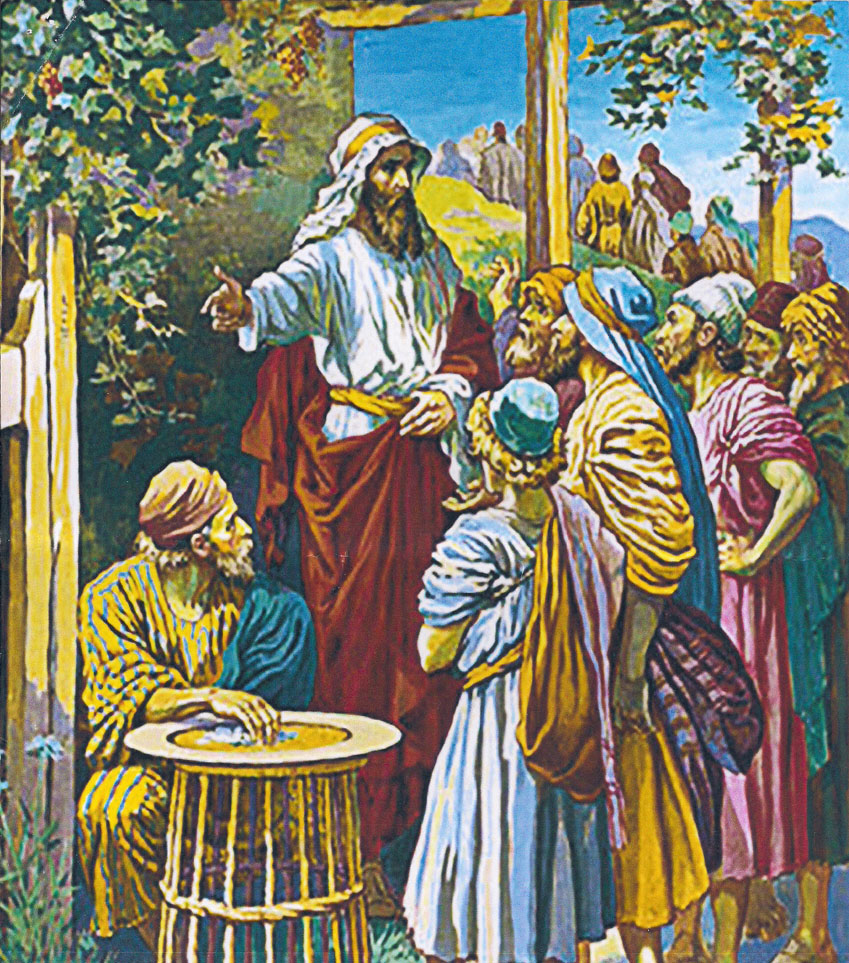
Just One Denarius?
Sermon for the Sixteenth Sunday after Pentecost: September 20, 2020 jj
Rev’d Mark B. Stirdivant, Good Shepherd Lutheran Church, Yucaipa, California
✝ sdg ✝
Life isn’t fair. Not everyone gets a trophy. Participation trophies are for the losers. Only the winner gets the one trophy that counts (and that’s what St. Paul says, so take up your grievance with him). Who’s offended now? Deep down, we know it’s true, but when we’re on the wrong side of “fair,” it’s a miserable truth to bear. It’s something we’re tempted to condemn as simply “unjust and wrong.”
Look again at Jesus’ story in the Gospel. Keep in mind that Jesus is teaching this parable to His own apostles, who firmly believed that they deserved greater heavenly treasures and better treatment from God because they gave up everything to follow Him, and they had been with Him from the very beginning. Jesus had just got done saying that the littlest children—the newcomers who’ve contributed nothing to the cause—will inherit the kingdom of heaven and it’s easier for a camel to pass through the eye of a needle than it is for a rich man to enter into heaven. The disciples were troubled by all this. Peter pipes up: “What about us? We’ve left everything to follow you. What are we going to receive? Don’t we deserve better?” Jesus responds with this parable. Talk about troubling. Everybody gets the same reward? Is this only a spiritual participation trophy? Everybody gets the same wage, even though some worked all day, from the beginning, and some barely did any work? Anyone who has ever had to earn a paycheck, you know how offensive that sounds. Same wage, same grade, for everyone, even though some work hard and some don’t. That’s not fair!
Human nature says, life isn’t fair, so now is this our Lord’s lesson to us, that God isn’t fair either? Well… hold on. Jesus Himself says that the Master in the parable very plainly tells the disgruntled workers that He most certainly was fair in His dealing with them. That is to say, He gave them exactly what He told them He would. He didn’t cheat them. He didn’t change the rules or move the goal posts. They knew what they were getting into before they even began. The Master was fair to everyone involved. After all, He’s free to do what He wants with His money, and He agreed from the onset to give everyone a denarius coin, whether they worked all day or just a few minutes. He was fair. He kept His Word, from start to finish. Yet the reaction persists…it’s not fair!
The whole history of the Old Testament teaches us repeatedly about how God, in His mercy and grace, dealt fairly with His chosen people Israel, in spite of their wicked and undeserving ways. He was “unfairly fair” with everyone involved, unfairly because they actually deserved His punishment, but He kept preserving for them the promise of the Messiah instead. Through Moses, God brought each and every one them—not just the “good” ones or the “deserving” ones—out of Pharaoh’s bondage through the cloud of His glory; through the Red Sea, giving them food and water, and not just any food and water, but His heavenly food and water—manna from heaven and water from a rock. Each and every one of them were recipients of His undeserved grace and love. And still…many of them complained. Many of them lamented how they had it better back in Egypt. They even went so far as to worship a golden calf, a god of their own making.
Through all of this rejection, God “unfairly” showed His love and grace to everyone…and still so many rejected Him all along the way. You need to think about that. The waters of His divine cloud; the passage through the waters of the Red Sea; the manna; the water from the rock… it wasn’t the mere act of receiving these gifts or simply participating in and going through the motions that made salvation a sure thing for His people. They all participated, but so few finished the race of faith and won the prize, as it were. So few held fast to God in faith, they gave up believing in Him, which is why so many perished. “You are not saved by works, lest anyone should boast. You are saved through faith alone in God’s grace alone.” Them’s the rules. Faith alone, grace alone, Christ alone. Anything else would make God unjust and unfair.
And it is precisely here that we can rightly speak in terms of fairness; fairness for everyone, no matter who you are, what your family is, what you did in the past, what your attendance record says, or what you put in the offering plate. St. Paul tells us in Romans 3 that “all have sinned and fallen short of the glory of God, and the wages for that sin is death.” All means everyone; across the board; every man, woman, and child—even the littlest lives still dwelling in the womb. Everyone is a sinner and everyone justly and fairly deserves temporal and eternal punishment for that sin in the eyes of God. Remember: Sin isn’t just what you do; it’s who you are, by nature. As children of Adam, we are all sinners. We’re all dead in our sin.
Then, the “unfair fairness” of God bursts through into the wonderful Gospel reality that He freely gives His grace and forgiveness to everyone, even and especially to those who don’t deserve it (which is everyone). Isn’t unfairness what mercy and grace are really all about? If you remember, mercy is defined as not receiving what you do deserve, and grace is understood as receiving something you absolutely do not deserve. When you think about it, there’s nothing fair at all about mercy or grace!
You want to talk about unfair? Jesus Christ, the innocent and perfect Son of God; the blameless, the sinless Son of God, died for the sins of the entire world; not just for the “good” or even just the elect. Remember: God so loved the whole world—not the “good” or the “deserving” few—that He sent His only-begotten Son to die for the world. That means that Christ died for EVERYONE. The innocent One—singular—died in place of the guilty… all of us. The undeserving One unfairly suffered our justly-deserved wrath and punishment. In the words of today’s Gospel story, Jesus worked the whole day and gave us the wage! His life-giving, life-saving blood and water poured forth from His pierced side for everyone to partake for everlasting life. Our heavenly Father gave to Jesus all that we deserved, and He gave to us all that we don’t deserve. That’s God’s mercy, grace, and love for you.
When you really think about it, God’s not fair, and that’s a good thing. All are equally damned sinners in His eyes, and all are equally saved and redeemed in His eyes because of saving faith alone in Christ’s death and resurrection alone. And still…so many reject and doubt and turn their backs and their hard hearts on Him. He made His Son take the fall and punishment for the whole world so that all of us could have eternal life with Him. And still…people reject Him, but still want His heavenly prize because they are, as they themselves would say, “good people.” They “deserve” to go to heaven. How sad! No one was left out or excluded from this divinely unfair display of wrath and love on the cross. God died for us. That’s not fair at all. Thank God that He doesn’t operate with our notion of fairness. Thank God that He is lovingly and mercifully unfair to us because of Jesus Christ.
My dear brothers and sisters in Christ: Rejoice that our lives with Him are not fair at all! May this same sense of true Christian unfairness be the font and source, the rock and anchor of your faith, your hope, and your peace. Be in Church. Be with Christ, right where He calls you to be; right where He promises to be…unconditionally. Hold fast to Christ, even as you run your race and make your way through this hostile, even unfair wilderness we call “life,” for here is Christ, in your midst, His life-giving Water and Blood still flowing forth from His victorious side to you as He graciously and abundantly pours out His love for you in Holy Baptism and Holy Communion. Take hold of the wage Jesus earned in your place. Run the race He has set before you. Run in faith until God mercifully says your race is finished, and you depart to be with Christ, which is better by far. Run and rejoice and ever hold fast in faith to this Rock and Trophy—your Rock and Trophy of Salvation.
In the Name of the Father and of the ✝ Son and of the Holy Spirit.

Green Altar Parament
Readings:
Isa. 55:6–9 My thoughts are not your thoughts
Psalm 27:1–9 The LORD is my light and my salvation; whom shall I fear?
Phil. 1:12–14, 19–30 to live is Christ, and to die is gain
Matt. 20:1–16 landowner went out…to hire laborers for his vineyard
